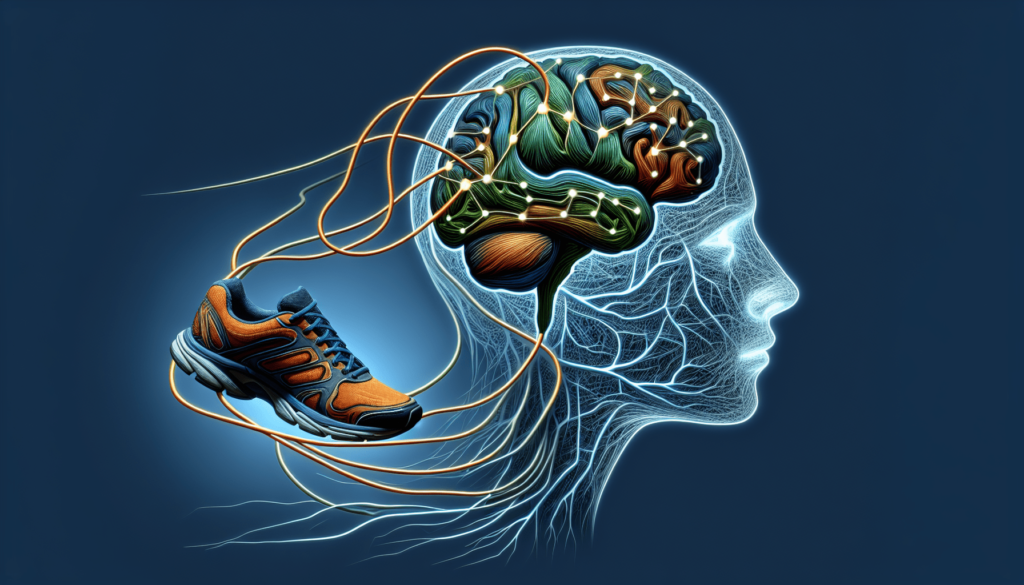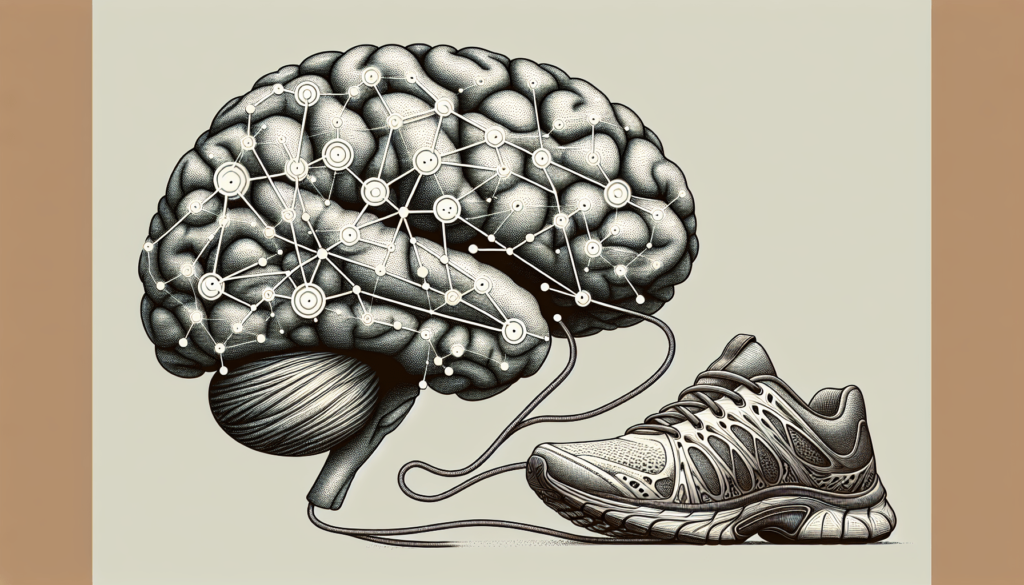Are you looking to boost your brainpower and enhance cognitive function? In this article, we explore the question of whether exercise can truly improve cognitive function and promote brain health. Discover the fascinating connection between physical activity and mental acuity, as we delve into the latest research and uncover the surprising benefits that exercise can have on your brain. Prepare to be intrigued by the potential for exercise to sharpen your mind and unlock your full cognitive potential. Get ready to lace up your sneakers and embark on a journey towards a healthier brain.
The Link Between Exercise and Cognitive Function
Exercise has long been praised for its numerous physical health benefits, but did you know that it can also have a positive impact on your cognitive function and overall brain health? Numerous studies have shown a strong connection between regular exercise and improved cognitive abilities, including memory, attention, and executive functions.

Exercise and Brain Health
When we talk about brain health, we are referring to the overall well-being and functioning of the brain. It involves various factors, such as blood flow, neurogenesis (the generation of new neurons), oxidative stress and inflammation, and brain plasticity and connectivity. Exercise has been found to influence each of these factors positively.
The Effects of Exercise on Cognitive Function
Cognitive function refers to the mental processes and abilities that allow us to perceive, process, store, and retrieve information. Regular exercise has been shown to have a profound impact on cognitive function, leading to improvements in memory, attention and concentration, executive functions, and even slowing down cognitive decline.
Mechanisms Behind the Cognitive Benefits of Exercise
The cognitive benefits of exercise are not just a coincidence. They arise from various mechanisms that occur within the brain when we engage in physical activity. These mechanisms include increased levels of brain-derived neurotrophic factor (BDNF), greater synaptic plasticity and neurotransmitter release, improved vascular function and reduced vascular risk factors, reduced inflammation and oxidative stress, and enhanced neurogenesis and neuronal survival.
Exercise Increases Blood Flow to the Brain
One of the immediate effects of exercise is an increase in blood flow to the brain. This increased blood flow ensures a steady supply of oxygen and nutrients to the brain, promoting its optimal functioning. Additionally, exercise stimulates the production of molecules that support the growth and maintenance of blood vessels in the brain, further enhancing blood flow.
Exercise Promotes Neurogenesis
Neurogenesis refers to the process of generating new neurons in the brain. Exercise has been found to promote neurogenesis, particularly in the hippocampus, a region critical for learning and memory. By increasing the production of new neurons, exercise can potentially enhance cognitive function, particularly in the areas of memory and learning.
Exercise Reduces Oxidative Stress and Inflammation in the Brain
Oxidative stress and inflammation can have detrimental effects on brain health and cognitive function. Exercise, however, has been shown to reduce oxidative stress and inflammation in the brain. By doing so, it protects neurons from damage and improves overall brain health.
Exercise Enhances Brain Plasticity and Connectivity
Brain plasticity refers to the brain’s ability to change and adapt in response to experiences and environmental stimuli. Exercise has been found to enhance brain plasticity, leading to improved connections between brain cells and enhanced communication within neural networks. This increased connectivity can result in improved cognitive abilities, such as attention, executive functions, and processing speed.
Exercise Improves Memory and Learning
One of the most well-known cognitive benefits of exercise is its positive impact on memory and learning. Regular exercise, particularly aerobic exercise, has been shown to enhance memory formation and retrieval. It improves the efficiency of the hippocampus, a key brain region involved in memory processes.
Exercise Boosts Attention and Concentration
If you often find yourself struggling to stay focused or easily distracted, incorporating exercise into your routine may help. Research suggests that physical activity can enhance attention and concentration, allowing you to stay more engaged and focused on tasks. Moreover, exercise has been shown to improve cognitive control, which is the ability to suppress irrelevant thoughts and distractions.
Exercise Enhances Executive Functions
Executive functions refer to a set of cognitive abilities that enable us to plan, organize, problem-solve, and regulate our behavior. Regular exercise has been found to improve executive functions, including cognitive flexibility, working memory, and inhibitory control. These improvements can lead to enhanced decision-making, problem-solving, and overall cognitive performance.
Exercise Slows Down Cognitive Decline and Reduces Risk of Dementia
As we age, our cognitive abilities naturally decline. However, exercise has been shown to slow down this cognitive decline and reduce the risk of developing dementia, including Alzheimer’s disease. Engaging in regular physical activity can help preserve cognitive function and protect against age-related cognitive decline.
Increased Brain-Derived Neurotrophic Factor (BDNF) Levels
Brain-derived neurotrophic factor (BDNF) is a protein that plays a crucial role in promoting the growth and maintenance of neurons. Exercise has been found to increase the levels of BDNF in the brain, leading to improved cognitive function. BDNF also supports the survival and function of existing neurons.
Greater Synaptic Plasticity and Neurotransmitter Release
Exercise promotes greater synaptic plasticity, which refers to the ability of synapses (connections between neurons) to change and adapt. It also leads to increased release of neurotransmitters, which are chemical messengers that facilitate communication between neurons. These changes enhance neural connectivity and communication, resulting in improved cognitive function.
Improved Vascular Function and Reduced Vascular Risk Factors
Regular exercise has a positive impact on vascular function, including increased blood flow and improved endothelial function (the health of blood vessel walls). It also helps to reduce vascular risk factors such as high blood pressure, obesity, and insulin resistance. These improvements in vascular health can enhance brain function and protect against cognitive decline.
Reduced Inflammation and Oxidative Stress
Chronic inflammation and oxidative stress can contribute to cognitive decline and neurodegenerative diseases. Exercise has been found to reduce both inflammation and oxidative stress in the brain, protecting neurons from damage and promoting overall brain health.
Enhanced Neurogenesis and Neuronal Survival
Exercise stimulates the process of neurogenesis, leading to the generation of new neurons in the brain. It also promotes neuronal survival, ensuring that existing neurons remain healthy and functional. These effects are particularly significant in brain regions crucial for memory and learning, such as the hippocampus.

Aerobic Exercise
Aerobic exercise, also known as cardio exercise, involves activities that increase your heart rate and breathing. It includes activities such as walking, jogging, swimming, biking, and dancing. Aerobic exercise has been found to have numerous cognitive benefits, including improved memory, attention, and executive functions.
Resistance Training
Resistance training, also known as strength training or weightlifting, involves exercises that work your muscles against resistance. This can include lifting weights, using resistance bands, or doing bodyweight exercises. While often associated with physical strength, resistance training also offers cognitive benefits. It has been found to improve memory, attention, and executive functions.
Mind-Body Exercises
Mind-body exercises, such as yoga, tai chi, and qigong, involve combining physical movements with mental focus and relaxation techniques. These exercises can enhance cognitive function by reducing stress, improving mindfulness, and promoting a sense of calm. Mind-body exercises have been shown to improve attention, memory, and executive functions.
Multicomponent Exercise Programs
Multicomponent exercise programs combine various forms of exercise, such as aerobic exercise, resistance training, and balance exercises. These programs provide a comprehensive approach to improving cognitive function. By incorporating different types of exercise, they target multiple cognitive domains and offer a wide range of cognitive benefits.
Exercise and Memory
Exercise has a significant impact on memory. It enhances memory formation and retrieval by promoting neurogenesis in the hippocampus, improving blood flow to the brain, and reducing inflammation and oxidative stress. Regular aerobic exercise has been shown to improve both short-term and long-term memory.
Exercise and Attention
If you struggle with attention and focus, exercise can be a powerful tool to improve these cognitive abilities. Physical activity enhances attention and concentration by increasing the release of neurotransmitters, boosting blood flow to the brain, and improving cognitive control. Engaging in aerobic exercise or mind-body exercises can have particularly positive effects on attention.
Exercise and Executive Functions
The executive functions, which include cognitive processes such as decision-making, problem-solving, and working memory, can be improved through regular exercise. Exercise enhances executive functions by increasing synaptic plasticity, promoting neurogenesis, and improving vascular function. Both aerobic exercise and resistance training have been shown to enhance executive functions.
Exercise and Processing Speed
Processing speed refers to the rate at which our brain can perceive and respond to information. It is an important aspect of cognitive function, particularly in tasks that require quick thinking and information processing. Regular exercise has been found to improve processing speed, enabling individuals to respond more efficiently to stimuli and perform tasks more effectively.
The Optimal Exercise Intensity for Cognitive Benefits
The optimal exercise intensity for cognitive benefits may vary depending on individual factors such as age, fitness level, and health conditions. Generally, moderate-intensity exercise, which raises your heart rate and makes you break a sweat, is recommended for cognitive benefits. However, it’s essential to consult with a healthcare professional or a qualified exercise specialist to determine the appropriate intensity for your specific needs.
The Ideal Duration and Frequency of Exercise
To reap the cognitive benefits of exercise, it is recommended to engage in regular physical activity. The American Heart Association suggests at least 150 minutes of moderate-intensity aerobic exercise or 75 minutes of vigorous-intensity aerobic exercise per week, along with strength training exercises at least two days a week. However, even shorter bouts of exercise can have positive effects on cognitive function, so find a routine that works best for you and your schedule.
Exercise Reduces the Risk of Cognitive Decline
Engaging in regular exercise can help reduce the risk of cognitive decline as we age. Studies have shown that individuals who are physically active have a lower risk of developing conditions such as mild cognitive impairment and dementia. Exercise helps to maintain brain health, protect against age-related cognitive decline, and preserve cognitive function.
Exercise as a Potential Treatment for Alzheimer’s Disease
While there is currently no cure for Alzheimer’s disease, research suggests that exercise can play a significant role in its prevention and management. Regular physical activity has been shown to improve cognitive function in individuals with Alzheimer’s disease and reduce the risk of developing the condition. Exercise may also slow down the progression of the disease and enhance overall quality of life.
Exercise and Cognitive Development in Children and Adolescents
Exercise is not only beneficial for adults but also for children and adolescents. Regular physical activity plays a crucial role in cognitive development during these stages of life. It promotes brain growth, improves focus and attention, enhances memory and learning, and supports the development of executive functions.
Exercise and Cognitive Function in Young and Middle-aged Adults
Even in young and middle-aged adults, exercise has been found to have significant cognitive benefits. Regular physical activity improves memory, attention, and executive functions, allowing individuals to perform better in various cognitive tasks. Additionally, exercise has been shown to reduce the risk of developing age-related cognitive decline later in life.
Exercise and Cognitive Aging in Older Adults
Older adults can also benefit greatly from engaging in regular exercise. Exercise has been found to improve cognitive function, memory, attention, and executive functions in older adults. It can help counteract age-related cognitive decline and reduce the risk of developing dementia. Additionally, exercise promotes overall physical health, which can have indirect positive effects on cognitive health in older adults.
The Importance of a Healthy Diet
While exercise plays a crucial role in promoting brain health, it is essential to combine it with a healthy diet for optimal results. A well-balanced diet rich in fruits, vegetables, whole grains, lean proteins, and healthy fats provides essential nutrients that support brain function. Certain foods, such as those rich in omega-3 fatty acids and antioxidants, have been shown to have specific cognitive benefits.
Adequate Sleep and Restorative Practices
In addition to exercise and a healthy diet, adequate sleep is essential for maintaining optimal cognitive function. Sleep allows the brain to rest and regenerate, consolidating memories and repairing brain cells. Restorative practices, such as stress reduction techniques, meditation, and relaxation exercises, can also support brain health and enhance cognitive function.
Stress Management and Mental Well-being
Chronic stress can have negative effects on brain health and cognitive function. Exercise can help reduce stress levels by triggering the release of endorphins, improving mood, and promoting relaxation. In combination with stress management techniques, such as mindfulness exercises and seeking social support, exercise can contribute to mental well-being and overall cognitive health.
Intellectual Stimulation and Cognitive Engagement
While exercise is a powerful tool for promoting cognitive function, it should not be the sole focus. Intellectual stimulation through activities like reading, puzzles, learning new skills, and engaging in social interactions is crucial for keeping the brain active and healthy. By combining exercise with intellectual stimulation, you can maximize the cognitive benefits and support overall brain health.
In conclusion, exercise plays a vital role in improving cognitive function and promoting brain health. Through various mechanisms, including increased blood flow, neurogenesis, reduced oxidative stress and inflammation, enhanced plasticity and connectivity, exercise offers numerous cognitive benefits. Whether you’re a child, adult, or older adult, incorporating regular exercise into your routine can have a profound impact on memory, attention, executive functions, and cognitive aging. By combining exercise with other lifestyle factors, such as a healthy diet, adequate sleep, stress management, and intellectual stimulation, you can optimize brain health and maintain cognitive function throughout your life. So get moving and give your brain a workout!
